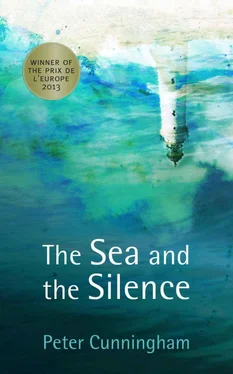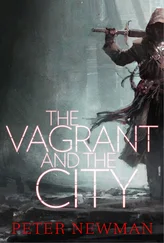‘Frank!’
The car stopped and he climbed out of the back.
‘I tried to find you to say goodbye,’ he said.
‘I wanted to write to you after the dance and apologise for my behaviour, but I didn’t know what to say,’ I blurted.
He stared at me. I said, ‘The real me was the me at the rugby match.’
‘I know.’
‘You do?’
‘Yes.’
‘I’m sorry, I was unforgivably rude.’
‘You were so angry’, he said, ‘I just couldn’t make out why.’
I closed my eyes. ‘I thought you were married to Alice. It was myself I was angry at.’
I expected him to laugh, but he said nothing for a moment. ‘Ah.’
‘You must think I’m a fool’.
‘Do I look as if I think you’re a fool?’
My breath was coming fast. ‘The only reason I came down to the dance was to see you.’
His eyes searched my face. The driver of the car was honking on the horn.
‘Do you think it might work? Us?’ he said.
‘Yes, I think it might.’
‘I’m willing to try it if you are,’ he smiled.
‘Yes, I’m willing to try,’ I said.
He climbed back into the car and drove away.
I said, ‘I love you.’
1944
Except for Allan, everyone left the day after the funeral and the house found a new routine. Spring cleaning began. When Daddy had been alive, he had been the focus of everyone’s energy; now jobs that had been put off for years were suddenly commissioned. Mother, of course, took no part, for although being married for years to an invalid was a strain from which she was happy to be released, I knew that part of her had gone with him and that grief respects no logic nor is any less no matter how long awaited.
My joyful mood, inappropriate though it was in the circumstances, carried me like a cork on a flood. Every time I thought of Frank, which was all the time, I smiled, for I was revolving through a galaxy of delight. My happiness was infectious: the girls in the house who were dusting and sweeping were happy too, and sang, as I did, as they brought ancient rugs into the garden and beat out decades of dust. Even as I sang, I knew that nothing but obstacles lay ahead of us, for the obligations in which our family had been reared were clear and, guided above all by the need to retain property, made a grave crime of marrying outside.
I found Allan sitting on the wall of the fairy mound. He held a match to my cigarette, then lit his own.
‘When are you going back?’ I asked.
‘Tomorrow.’
‘Do you like it? I mean, the army?’
Allan looked away. ‘I’d never have joined up except for Daddy.’
‘Really? I thought you couldn’t wait.’
‘You were away at school. I was trying to get this place back on its feet, but every night he’d start on at me, about Ireland’s neutrality and about how I was shirking my duty. My duty, you know. When I told him the war wasn’t Ireland’s, he went purple. I eventually joined up just to get away from him.’
Allan, I realised, had become idealized in my mind over the years, a distant and absent hero on whom everyone could depend.
‘I’m sorry, I didn’t know’, I said.
‘It’s the past, it’s over now.’
‘What will you do, now that he’s no longer here?’
‘I have to see it through. I’m an officer, I have obligations to my men. But when it’s over, I’ll come back here and have Longstead humming within a year.’ He smiled. ‘What will you do, Iz?’
‘Me?’
‘With your life.’
‘I hate these kind of questions.’
‘But you have dreams.’
I watched crows circling, eyeing their nests. ‘I would like to get away when the war is over. To see a lot more of the world than Longstead.’
‘And then? To come home?’
I looked at him. ‘I don’t think so. It’s different for a woman.’
He said nothing for a moment.
‘I like him, Iz,’ he said softly.
I stared at my brother, then laughed. ‘How do you know anything?’
‘I saw you with him just before he left. The way you were looking at one another. And in the last few days here you’ve been floating on air.’
‘Yes, I am happy,’ I said, still laughing. ‘But you don’t know him.’
‘I know men, Iz. He and I chatted for nearly twenty minutes the other day. He’s a good lad. A bit hot, maybe, but his heart is in the right place. He’ll go far.’
‘What did you talk about?’
‘The war. Like everyone, he wants to know when it will end. About Ireland. Ronnie Shaw’. Allan grinned. ‘He told me that Ronnie wrote and said he’s been beagling in Scotland.’
Wind swept through the top branches of the bare trees above us.
‘Bella will have a fit,’ I said.
‘Forget Bella,’ Allan said. ‘Forget this place and all the nonsense. Follow your heart.’
‘Do you really mean that?’
‘Of course I do. We’ve only got one life. You’ve got to live your dreams. No one else is going to do that for you.’
‘It won’t be easy.’
‘I know. But he’s worth it. I know that,’ Allan said. ‘And so do you.’
True to his word, Norman Penrose began to show up with men and with horses harnessed to ploughs. Paddocks were turned and fencing was seen to in fields which in spring would graze cattle. Norman could often be seen walking our land with his foreman, pointing to this and that with the blackthorn stick he always carried. Afterwards, he invariably called in and was given tea, but I kept a good eye out and managed to avoid many of these visits.
Frank had written to me as soon as he got back to Monument. His letters matched my mood — they overflowed. I wrote back and asked him to come up again as soon as he could. I thought of nothing else except of how he would suddenly appear, as he had the last time, and of all the things we would then have to say and do together.
A letter came from Ronnie in February. It was written with a tone of resignation. It seems that he and Allan had met somewhere in the south of England. I could just imagine poor Ronnie bubbling away about me and Allan gently but firmly putting him in the picture. Although he did not mention Frank, Ronnie wished me whatever my heart desired and asked only that I keep a part of myself, however small, for him to love. I had to smile, for although Ronnie was not the type of man I could have ever imagined myself with, he was, at least, consistent in the advancing of his affections, and he was kind.
Frank arrived one afternoon as the first green pinheads appeared on the hazel. I saw him from a distance, riding a bicycle up the avenue. I thought later how telling it was that even as a speck so far away, I was sure that it was him. He had taken the train to Kildare and cycled the rest, a journey of nearly forty miles. We went in and I brought him to the little sitting room beside the kitchen where, in winter, seasoned cuts of beech crackled from dawn.
‘Mother, this is Frank. A friend from Monument.’
‘From Monument? ‘Mother turned from her easel. ‘I have always wanted to paint the quays of Monument.’
We had tea and hot scones and afterwards Mother showed him her watercolours. Frank said,
‘You should exhibit.’
‘Oh, I never would. Who would buy them?’
‘I would, if I had the money,’ he said.
We went walking then, and the evening was the first one in which a real stretch of light was evident. Where we had paused by a stile on the day of the funeral, this time we crossed it into the lake field and walked to a derelict shed where once ewes had been brought with their new born lambs out of the harsh weather.
We were both so happy that words were unimportant. We didn’t even touch, as I recall. It must have been that afternoon that he told me about his family, about his father, a merchant seaman, who, like all in his trade, had been put out of work by the war. Frank had been to school and had read the classics. He liked Milton and Wordsworth. He did not intend to spend his whole life working on the docks in Monument, he said, but could see no alternative until after the war.
Читать дальше












![Edward Ellis - Adrift on the Pacific - A Boys [sic] Story of the Sea and its Perils](/books/753342/edward-ellis-adrift-on-the-pacific-a-boys-sic-s-thumb.webp)